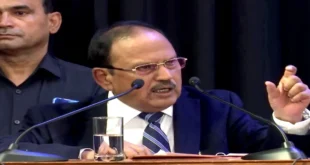 Mumbai: The Reserve Bank of India (RBI) on Friday opened a separate liquidity window of Rs 15,000 crore till March 31 next year to mitigate the adverse impact of Covid-19’s second wave on certain contact-intensive sectors.
Mumbai: The Reserve Bank of India (RBI) on Friday opened a separate liquidity window of Rs 15,000 crore till March 31 next year to mitigate the adverse impact of Covid-19’s second wave on certain contact-intensive sectors.
The facility will have tenors of up to three years at repo rate (4 per cent), said RBI Governor Shaktikanta Das.
Under the scheme, banks can provide fresh lending support to hotels and restaurants; tourism — travel agents, tour operators and adventure/heritage facilities; aviation ancillary services — ground handling and supply chain; and other services that include private bus operators, car repair services, rent-a-car service providers, event/conference organisers, spa clinics, and beauty parlours/saloons.
By way of an incentive, banks will be permitted to park their surplus liquidity up to the size of loan book created under this scheme with the RBI under reverse repo window at a rate which is 25 basis points lower than repo rate. Or, termed in a different way, 40 basis points higher than the reverse repo rate.
To further support the funding requirements of micro, small and medium enterprises (MSMEs), particularly smaller MSMEs and other businesses including those in credit deficient and aspirational districts, the RBI has also decided to extend a special liquidity facility of Rs 16,000 crore to SIDBI for on-lending/refinancing through novel models and structures.
This facility will be available at the prevailing policy repo rate for a period of up to one year, which may be further extended depending on its usage.
On May 5, the central bank had announced Resolution Framework 2.0 providing for resolution of Covid-19 related stress of MSMEs as well as non-MSME small businesses and loans to individuals for business purposes.
To enabling a larger set of borrowers to avail of benefits under Resolution Framework 2.0, the RBI has now expanded coverage of borrowers by enhancing maximum aggregate exposure threshold from Rs 25 crore to Rs 50 crore for MSMEs, non-MSME small businesses and loans to individuals for business purposes.
“The RBI remains fully committed to creating an enabling environment in which a sound and efficient financial sector flourishes while preserving financial stability,” said Das.
He said the sudden rise in Covid-19 infections and fatalities has impaired the nascent recovery that was underway, but has not snuffed it out.
“The impulses of growth are still alive. Aggregate supply conditions have shown resilience in the face of second wave,” said Das.
“We will continue to think and act out of the box, planning for the worst and hoping for the best. The need of the hour is not to be overwhelmed by the current situation, but to
collectively overcome it,” he said.
 Pressmediaofindia
Pressmediaofindia




